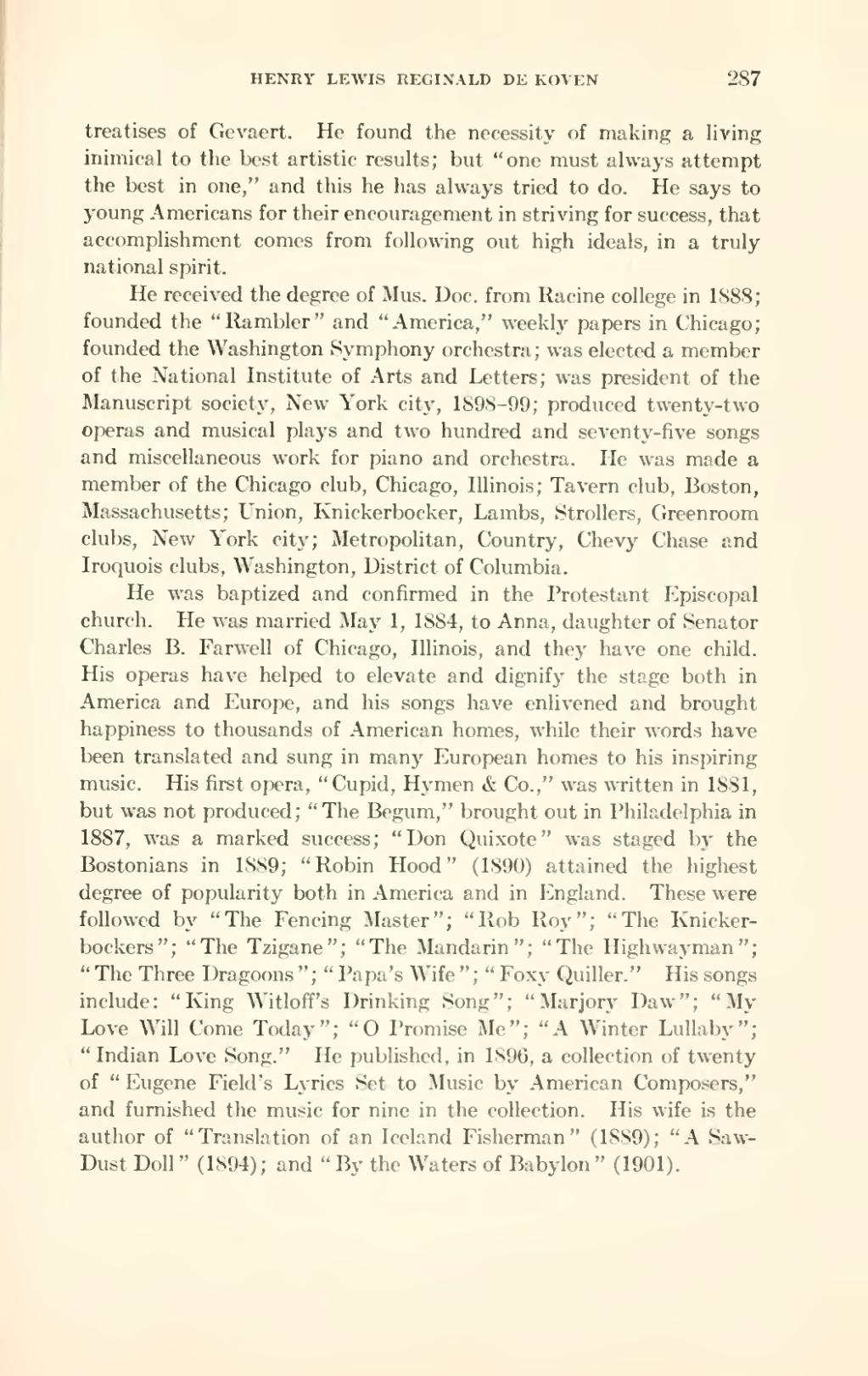treatises of Gevaert. He found the necessity of making a living inimical to the best artistic results; but "one must always attempt the best in one," and this he has always tried to do. He says to young Americans for their encouragement in striving for success, that accomplishment comes from following out high ideals, in a truly national spirit.
He received the degree of Mus. Doc. from Racine college in 1888; founded the "Rambler" and "America," weekly papers in Chicago; founded the Washington Symphony orchestra; was elected a member of the National Institute of Arts and Letters; was president of the Manuscript society, New York city, 1898-99; produced twenty-two operas and musical plays and two hundred and seventy-five songs and miscellaneous work for piano and orchestra. He was made a member of the Chicago club, Chicago, Illinois; Tavern club, Boston, Massachusetts; Union, Knickerbocker, Lambs, Strollers, Greenroom clubs, New York city; Metropolitan, Country, Chevy Chase and Iroquois clubs, Washington, District of Columbia.
He was baptized and confirmed in the Protestant Episcopal church. He was married May 1, 1884, to Anna, daughter of Senator Charles B. Farwell of Chicago, Illinois, and they have one child. His operas have helped to elevate and dignify the stage both in America and Europe, and his songs have enlivened and brought happiness to thousands of American homes, while their words have been translated and sung in many European homes to his inspiring music. His first opera, "Cupid, Hymen & Co.," was written in 1881, but was not produced; "The Begum," brought out in Philadelphia in 1887, was a marked success; "Don Quixote" was staged by the Bostonians in 1889; "Robin Hood" (1890) attained the highest degree of popularity both in America and in England. These were followed by "The Fencing Master"; "Rob Roy"; "The Knickerbockers"; "The Tzigane"; "The Mandarin"; "The Highwayman"; "The Three Dragoons"; "Papa's Wife "; " Foxy Quiller." His songs include: "King Witloff's Drinking Song"; "Marjory Daw"; "My Love Will Come Today"; "O Promise Me"; "A Winter Lullaby"; "Indian Love Song." He published, in 1896, a collection of twenty of "Eugene Field's Lyrics Set to Music by American Composers," and furnished the music for nine in the collection. His wife is the author of "Translation of an Iceland Fisherman" (1889); "A Saw-Dust Doll" (1894); and "By the Waters of Babylon" (1901).

